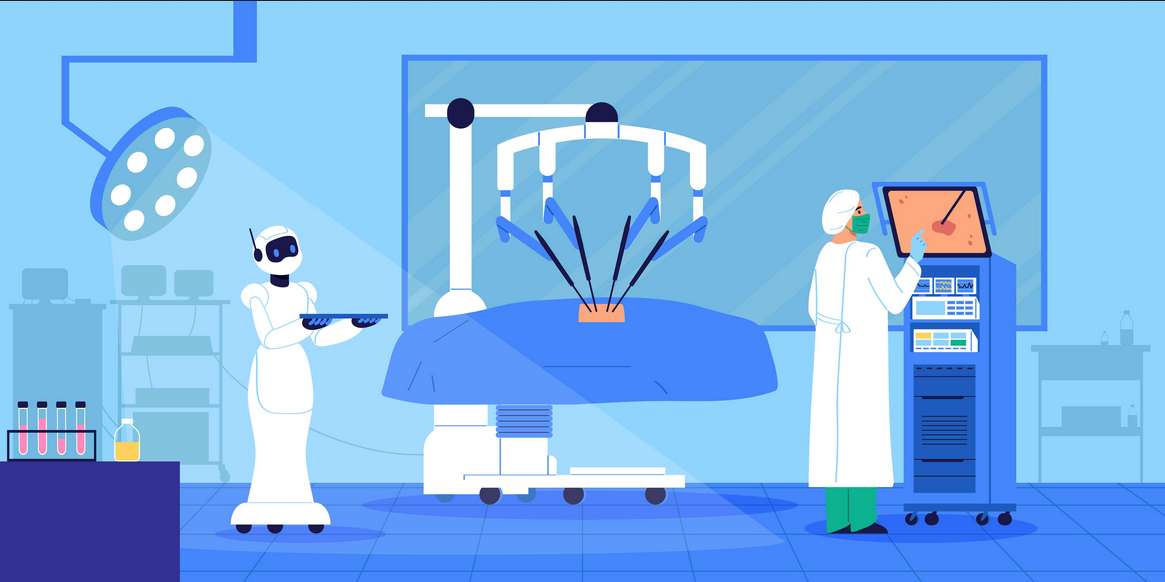Introduction
Artificial Intelligence (AI) surgery is ushering in a new era in the medical field, marked by remarkable advancements in precision, efficiency, and patient care. This revolutionary technology employs robotics and computer vision to aid surgeons in performing intricate procedures with unprecedented accuracy and effectiveness.
The Mechanism Behind AI Surgery
AI surgery systems rely on an array of sensors and cameras to construct a 3D map of a patient’s anatomy. This intricate map guides robotic arms throughout the procedure. Surgeons, in turn, skillfully manipulate these robotic arms using input devices like joysticks.
Machine learning further elevates AI surgery by enabling systems to identify vital anatomical structures and recommend optimal surgical approaches. This empowers surgeons to avert complications and expedite procedures.
The Advantages of AI Surgery
AI surgery offers a multitude of advantages over traditional surgery, including:
- Elevated Precision and Accuracy: AI surgery systems outperform human surgeons in terms of precision, as they are immune to factors like fatigue, hand tremors, and limited vision.
- Diminished Risk of Complications: The technology significantly lowers the risks associated with surgery, such as bleeding, infection, and nerve damage, through precise execution.
- Reduced Surgical Durations: AI surgery systems can often complete procedures more swiftly by working continuously without breaks and multitasking.
- Accelerated Recovery: AI-driven minimally invasive procedures cause minimal tissue damage and discomfort, facilitating faster patient recovery.
- Enhanced Patient Outcomes: AI surgery contributes to better patient outcomes by mitigating risks, shortening surgery and recovery times, and improving overall quality of care.
Challenges and Boundaries
While AI surgery is a promising frontier, it encounters several challenges:
- Cost: The high cost of AI surgery systems hinders their accessibility to certain hospitals and patients.
- Specialized Training: Surgeons must undergo specialized training to utilize AI surgery systems effectively, presenting barriers in some regions.
- Ethical Concerns: Ethical questions surface concerning the use of AI surgery for elective procedures and the extent of human involvement.
Conclusion
Despite these challenges, AI surgery holds the potential to revolutionize medicine by rendering surgery safer, more efficient, and globally accessible. As AI surgery technology continues to evolve and become more cost-effective, its widespread adoption seems inevitable.
The Future of AI Surgery
The future of AI surgery is exceptionally promising. Advancements in AI technology will render AI surgery systems even more sophisticated and affordable. These systems will cater to a broader range of surgical procedures, from intricate cancer surgeries to minimally invasive heart surgeries, and even remote surgeries. This paradigm shift will empower patients to access specialized care from virtually anywhere in the world.
In conclusion, AI surgery represents a transformative technology poised to enhance the lives of millions of patients worldwide.

